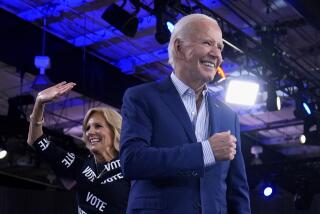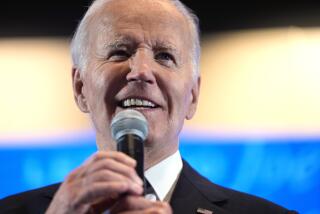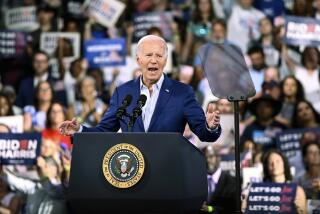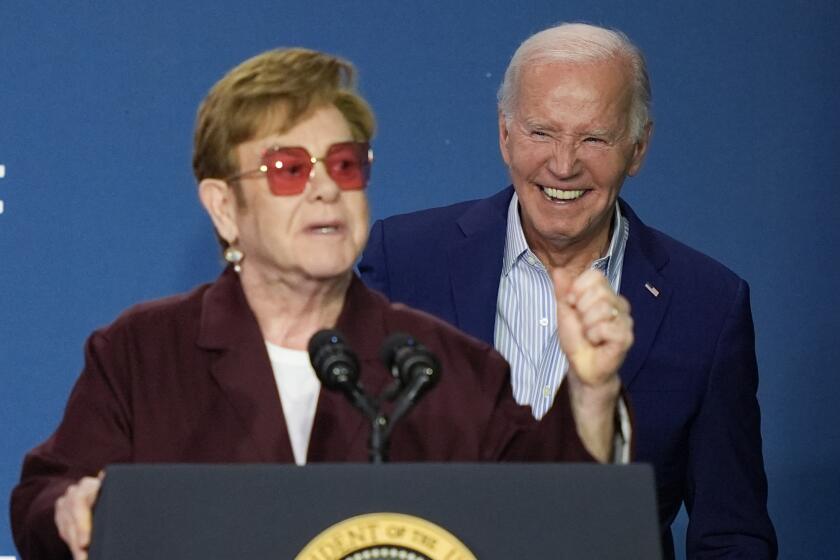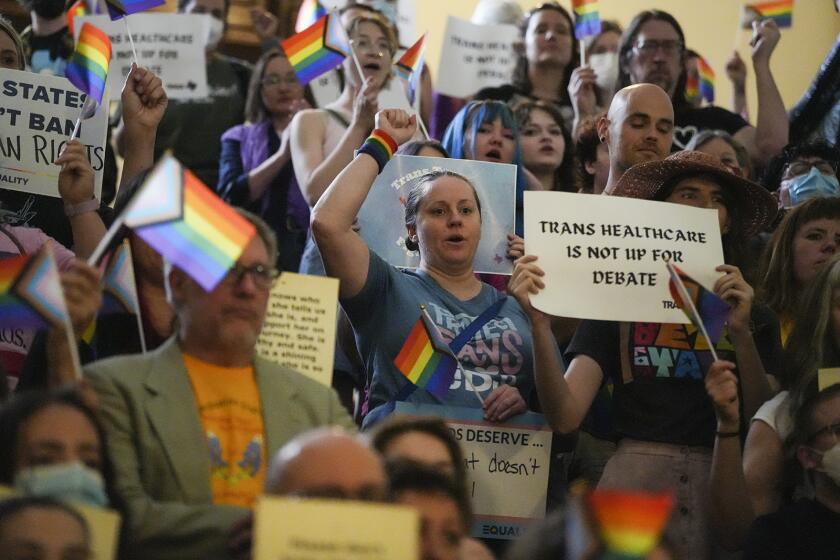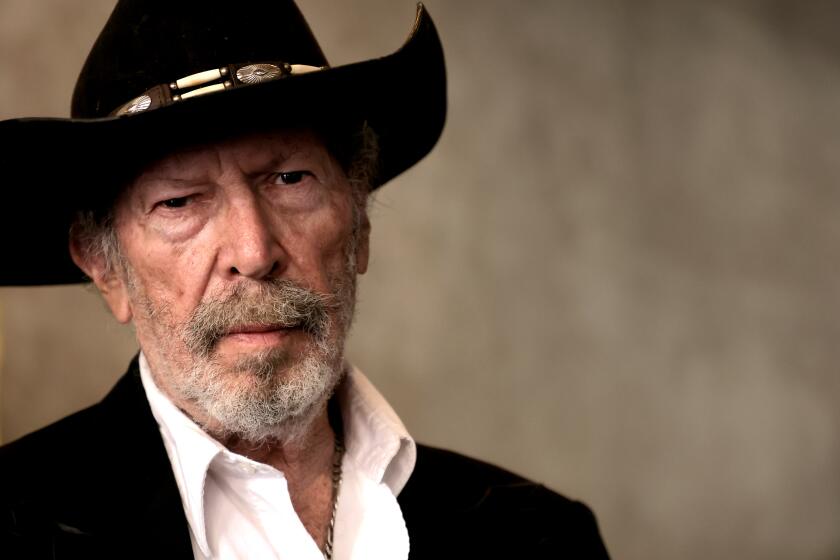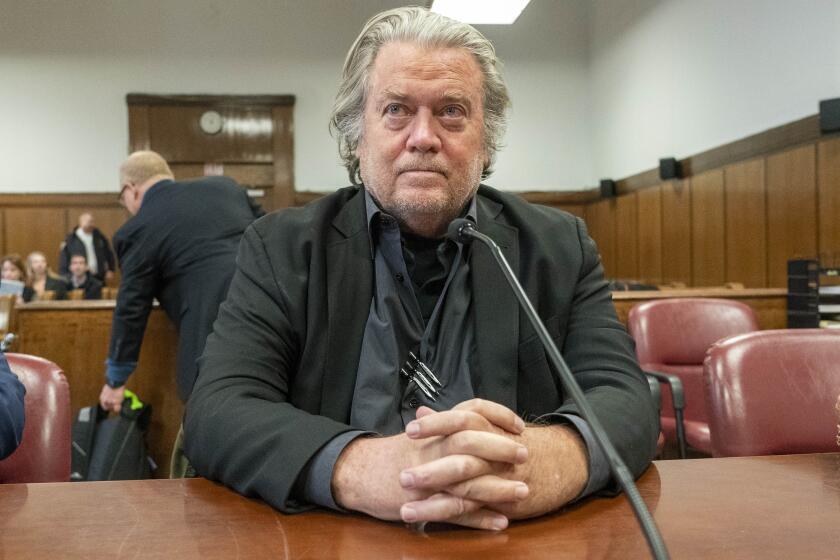A Moment of Victory, Then the Dream Died
Victory was written across the faces of thousands who stood pressed together in the Embassy Ballroom at the Ambassador Hotel the warm evening of June 4, 1968.
Sen. Robert F. Kennedy had just defeated Sen. Eugene McCarthy in the delegate-rich California primary. And though political experts were still touting Vice President Hubert H. Humphrey as the Democratic Party front-runner, the possibilities this night seemed endless.
The lean, boyish-looking senator from New York savored his victory in a fifth-floor suite, sipping a glass of ginger ale, his feet propped up on the bed as he watched the returns trickle in.
His wife, Ethel, pregnant with their 11th child, sat on the other side of the bed a few feet from retired astronaut John Glenn and playfully poked at her husband.
Kennedy had spent the day body surfing in Malibu and seemed in no mood to leave the bed and descend to his cheering, victorious supporters below.
But it was shortly before midnight, so Kennedy put on his coat, straightened his tie and headed out the door to the service elevator.
Kennedy, his wife, a body guard and Jesse Unruh, speaker of the California Assembly, went to the second floor, walking through a kitchen area and out onto a small stage overlooking the Embassy Ballroom.
The crowd screamed and chanted Kennedy’s name.
“I want to first express my high regard to Don Drysdale who pitched his sixth straight shutout tonight,” Kennedy, taking the microphone, said in tribute to the celebrated Dodger pitcher.
“And I hope that we have as good fortune in our campaign.”
After a serious discussion about putting an end to the Vietnam War and healing the division between blacks and whites, the poor and the affluent, the 42-year-old Kennedy thanked his supporters.
“Mayor (Sam) Yorty (of Los Angeles) has just sent me a message that we’ve been here too long already,” Kennedy joked, flashing a toothy grin.
“So my thanks to all of you, and on to Chicago, and let’s win there.”
It was about 12:10 a.m. He turned, jumped about 2 feet off the back of the stage and began the wild push through the crowds that reached out for his hand.
A maitre d’ at the Ambassador led the senator through a pantry toward the Colonial Room, where reporters were banging out their stories. It was a last minute change of plans. Kennedy had orginally planned to go downstairs to another victory party in a ground-floor ballroom.
Kennedy stopped to talk with a busboy, 17-year-old Juan Romero.
Seconds later, at about 12:15 a.m., a tiny man named Sirhan Bishara Sirhan, 24, stepped off a tray rack and yelled, “Kennedy, you son of a bitch,” and shoved a .22-caliber revolver close to Kennedy’s ear and pulled the trigger.
The gunman kept firing until he had emptied the weapon. Two other bullets entered Kennedy’s body below his right armpit. The other bullets felled five persons standing nearby, including attorney Paul Schrade.
After a frozen instant of incomprehension, Kennedy crumbled to the floor, and pandemonium ensued.
Romero bent over Kennedy and put a rosary in the senator’s hand while a wild-eyed Ethel Kennedy moved through the panic-stricken crowd and knelt beside her husband in a pool of blood.
“Get back, all of you,” she screamed. “Get out. Please get out! For God’s sake, give him room to breathe.”
Three body guards, including Roosevelt Grier, a retired member of the Los Angeles Rams, wrestled for the gun and pinned the assassin down on a steam table.
Minutes later, an ambulance arrived and Kennedy was taken to Central Receiving Hospital. He had sunk into a coma. A young doctor examined Kennedy and roughly slapped his face in an attempt to revive him. Ethel Kennedy gasped.
After about 30 minutes, he was transferred to Good Samaritan Hospital. Surgeons spent three hours and 40 minutes removing the fragments of the bullet from his brain.
For nearly 13 hours, Kennedy languished and people prayed.
At 2 a.m. the morning of June 6, the senator’s press secretary, Frank Mankiewicz, read a brief statement.
Robert F. Kennedy had died at 1:44 a.m. A presidential dream had ended.
More to Read
Get the L.A. Times Politics newsletter
Deeply reported insights into legislation, politics and policy from Sacramento, Washington and beyond. In your inbox three times per week.
You may occasionally receive promotional content from the Los Angeles Times.
